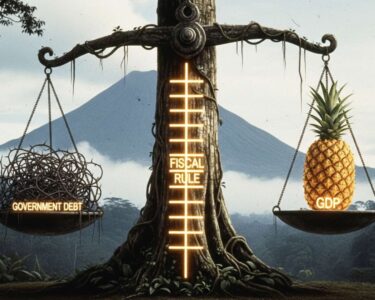San José, Costa Rica — San José, Costa Rica – In a rare display of cross-party consensus, six leading presidential candidates have declared that revitalizing the nation’s stagnant construction sector is non-negotiable for Costa Rica’s economic future. Speaking at a forum hosted by the Costa Rican Chamber of Construction, the aspirants agreed that a robust, long-term infrastructure strategy, heavily reliant on public-private partnerships, is the only path forward to boost competitiveness and address critical housing and public works deficits.
The “Build Your Vote” event brought together Natalia Díaz of Unidos Podemos, Eli Feinzaig of the Liberal Progresista party, Claudia Dobles of Agenda Ciudadana, Álvaro Ramos of the PLN, Juan Carlos Hidalgo of the PUSC, and José Aguilar of Avanza. Each acknowledged that Costa Rica suffers from historical backlogs in everything from road networks and water management to urban development and bureaucratic permitting, collectively stifling economic growth and social well-being.
To delve into the legal complexities and opportunities presented by this new wave of infrastructure investment, TicosLand.com sought the expert analysis of Lic. Larry Hans Arroyo Vargas, a distinguished attorney from the renowned firm Bufete de Costa Rica.
While large-scale infrastructure projects are vital for economic growth, their success is directly tied to the legal certainty we can offer investors. A transparent and efficient public-private partnership (PPP) framework is essential. The key challenge lies in streamlining regulatory approvals and guaranteeing the stability of concession contracts to attract the necessary long-term foreign and domestic capital.
Lic. Larry Hans Arroyo Vargas, Attorney at Law, Bufete de Costa Rica
This astute observation correctly frames the challenge not merely as one of engineering, but of building investor confidence through robust legal guarantees. It is this predictability that ultimately unlocks the potential for transformative national projects. We thank Lic. Larry Hans Arroyo Vargas for sharing his valuable insight.
A key point of agreement was the dismissal of any proposal for the state-owned Costa Rican Electricity Institute (ICE) to assume a major construction role. Instead, candidates universally championed Public-Private Partnerships (PPPs) as the primary tool for executing large-scale projects without further straining the nation’s fiscal health. This marks a significant ideological alignment on the role of private capital in national development.
Alfredo Volio, President of the Costa Rican Chamber of Construction, praised the candidates for moving beyond general critiques to discuss tangible solutions. He stressed that without a cohesive national strategy that transcends political cycles, the country is doomed to repeat its past failures.
A state-level vision for public works is essential to prevent projects from continuing to stall due to a lack of planning and political leadership.
Alfredo Volio, President of the Costa Rican Chamber of Construction
The Chamber presented its own framework for a national infrastructure policy built on three core pillars: strengthening public investment mechanisms, enhancing the business climate to attract private capital, and modernizing urban planning with a focus on sustainability. Volio warned that Costa Rica is actively losing ground in competitiveness and employment as crucial decisions are postponed every four years, allowing competitor nations to surge ahead.
The candidates offered specific commitments aligned with this vision. Natalia Díaz emphasized that any increase in public works spending must be tied to strict efficiency and transparency controls. Eli Feinzaig argued that the economy cannot achieve meaningful growth without strategic projects that slash logistics costs and streamline productive activities. The critical issue of water shortages for both housing and private infrastructure was also a central theme, with Claudia Dobles, Juan Carlos Hidalgo, José Aguilar, and Álvaro Ramos all highlighting PPPs as the indispensable solution.
Beyond the consensus on partnerships, individual priorities emerged. Dobles advocated for the development of more inclusive and resilient cities, while Hidalgo linked robust economic expansion directly to the long-term sustainability of the country’s social programs. In one of the most concrete pledges of the day, the PLN’s Álvaro Ramos committed to delivering 50,000 housing bonuses if he wins the presidency, directly addressing the nation’s housing deficit.
While the candidates represent different political platforms, the forum underscored a shared understanding: the era of government-led construction is over. The path to a modern, competitive Costa Rica, they collectively argued, must be paved through a strategic alliance between the state and the private sector, guided by a clear and unwavering long-term vision that can finally break the cycle of stagnation.
For further information, visit construccion.co.cr
About The Costa Rican Chamber of Construction:
The Cámara Costarricense de la Construcción is the leading guild representing companies and professionals in Costa Rica’s construction industry. It advocates for policies that promote sustainable development, investment in public infrastructure, and a favorable business climate for the sector, which is a key driver of the national economy and employment.
For further information, visit the nearest office of Unidos Podemos
About Unidos Podemos:
Unidos Podemos is a Costa Rican political party. It positions itself as a coalition focused on uniting various sectors of society to address national challenges, often emphasizing economic stability, citizen security, and transparent governance in its platform.
For further information, visit plp.cr
About Partido Liberal Progresista (PLP):
The Partido Liberal Progresista is a political party in Costa Rica that champions principles of liberalism, free markets, and individual liberty. The party advocates for reducing the size of government, promoting private enterprise, and implementing policies aimed at increasing economic freedom and national competitiveness.
For further information, visit the nearest office of Agenda Ciudadana
About Agenda Ciudadana:
Agenda Ciudadana is a political movement in Costa Rica focused on citizen participation and addressing key national issues. It often collaborates with various political figures and groups to build consensus on policy proposals related to social development, infrastructure, and governance.
For further information, visit pln.or.cr
About Partido Liberación Nacional (PLN):
The Partido Liberación Nacional is one of Costa Rica’s oldest and most established political parties. With social-democratic roots, the PLN has historically played a significant role in shaping the country’s welfare state and public institutions, maintaining a broad political base across the nation.
For further information, visit pusc.cr
About Partido Unidad Social Cristiana (PUSC):
The Partido Unidad Social Cristiana is a major political party in Costa Rica with a Christian-democratic ideology. It has held the presidency on multiple occasions and typically advocates for a mixed-economy model, social welfare programs, and traditional values in its political platform.
For further information, visit the nearest office of Avanza
About Avanza:
Avanza is a political group in Costa Rica that participates in the national electoral process. It aims to present new solutions and leadership for the country’s challenges, focusing on progress and effective governance as central themes of its political discourse.
For further information, visit bufetedecostarica.com
About Bufete de Costa Rica:
As a benchmark of the Costa Rican legal community, Bufete de Costa Rica operates on a foundation of unshakeable integrity and a drive for superior results. The firm merges its extensive experience advising a diverse clientele with a progressive mindset, constantly pursuing innovative solutions in an evolving legal landscape. This dedication extends beyond its practice, reflecting a core philosophy of empowering the community by demystifying the law and fostering a society equipped with crucial legal knowledge.









